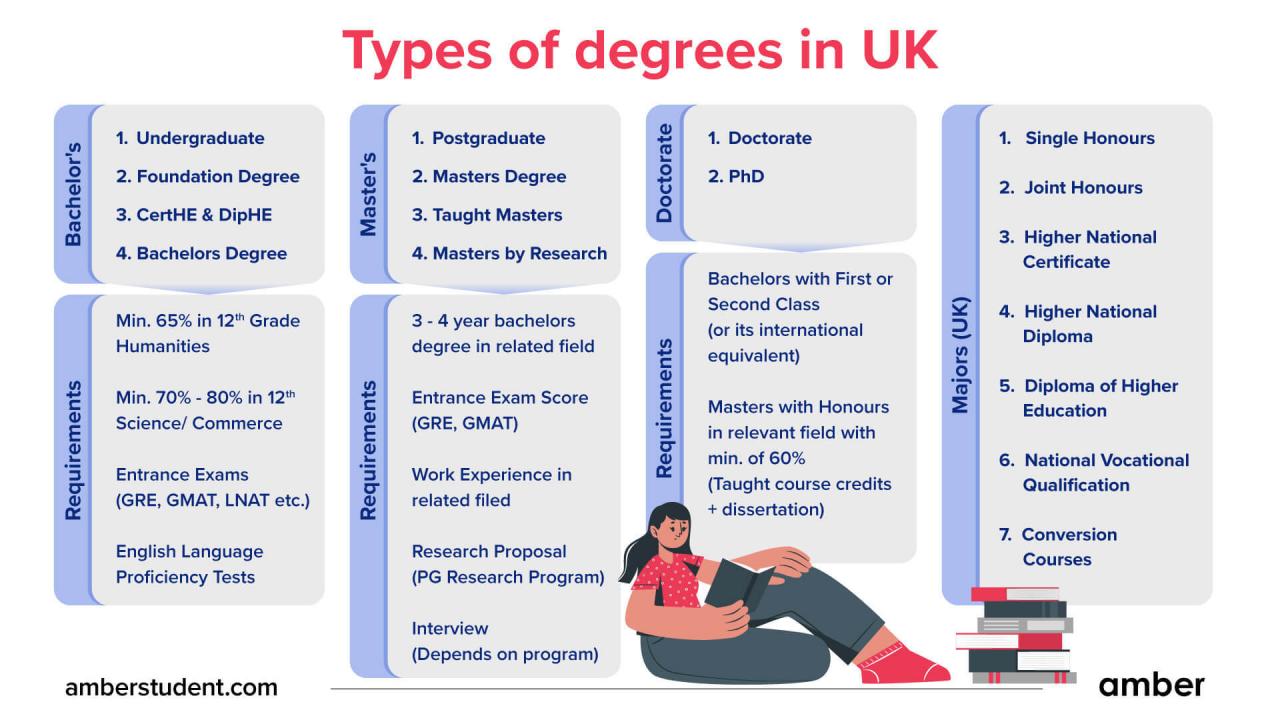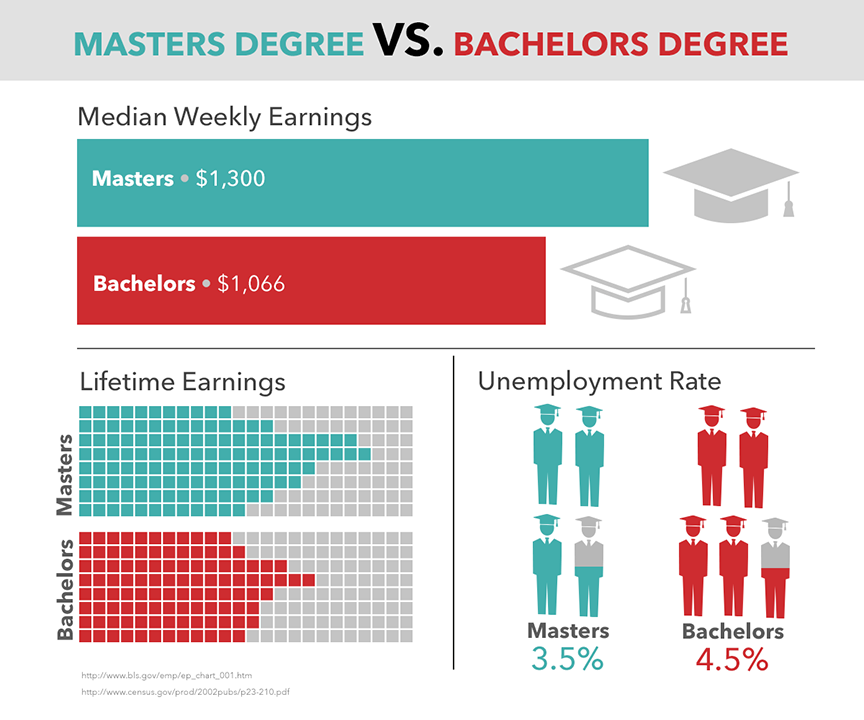Career paths and salary expectations for education degree holders in specific countries? It’s a question on many graduates’ minds. This isn’t just about teaching; it’s about exploring a diverse range of roles spanning curriculum development, educational administration, and even tech integration within the education sector. From the bustling classrooms of the US to the prestigious universities of the UK, we’ll unpack the realities of career progression, salary expectations, and the factors influencing them across different countries.
Get ready to navigate the exciting (and sometimes challenging!) world of education careers!
This exploration will delve into the specifics of career paths in the US, UK, Canada, and Australia, comparing teaching and non-teaching roles, salary ranges, and the impact of experience and location. We’ll also examine how further education and certifications can boost your earning potential and career trajectory. Ultimately, this guide aims to equip you with the knowledge to make informed decisions about your future in the education field, wherever your journey may lead.
Introduction to Education Degree Holders’ Career Paths
An education degree opens doors to a surprisingly diverse range of career paths, extending far beyond the traditional classroom setting. While teaching remains a cornerstone, graduates equipped with strong pedagogical skills and subject matter expertise find opportunities in various sectors, leveraging their abilities in communication, critical thinking, and interpersonal relations. The specific career trajectory often depends on the level of education pursued (e.g., Bachelor’s, Master’s, Doctorate), specializations chosen, and individual career goals.Education degree holders possess a transferable skillset highly valued by employers across numerous industries.
Their expertise in curriculum development, assessment design, and student mentorship translates effectively into roles requiring instructional design, training facilitation, and talent development. This adaptability contributes to the broad appeal of education degrees in the modern job market.
Wondering about career paths and salary expectations for education degree holders in, say, Canada versus Australia? The earning potential varies wildly depending on your chosen specialization, so figuring out the right fit is crucial. To navigate this, check out this helpful guide on How to choose the right specialization for an education degree? before making your decision.
Ultimately, the right specialization directly impacts your future career trajectory and earning power in any country.
Diverse Roles for Education Graduates
Education graduates can pursue a wide array of roles, both within and outside the traditional education system. Within the education sector, roles range from elementary school teachers and secondary school instructors to higher education professors, curriculum developers, educational consultants, and special education specialists. Beyond the classroom, these skills translate into roles such as instructional designers in corporate settings, training managers in various industries, educational researchers, and even roles in government agencies focused on education policy.
Many graduates also find fulfilling careers in non-profit organizations focused on educational initiatives and community development.
Entry-Level vs. Experienced Roles for Education Graduates
The career progression for education degree holders typically involves a clear path from entry-level positions to more senior roles with increased responsibilities and compensation. The following table illustrates this progression, highlighting some key differences:
| Role | Entry-Level (0-3 years experience) | Experienced (3+ years experience) | Salary Expectations (USD – Approximate & Variable by Location and Specialization) |
|---|---|---|---|
| Teacher | Classroom Teacher, Teaching Assistant | Lead Teacher, Department Head, Curriculum Coordinator | $35,000 – $60,000; $60,000 – $90,000+ |
| Instructional Designer | Instructional Design Assistant, Training Specialist | Senior Instructional Designer, Learning Experience Designer, Training Manager | $45,000 – $65,000; $70,000 – $110,000+ |
| Educational Consultant | Research Assistant, Program Evaluator | Educational Consultant, Program Director, Policy Analyst | $50,000 – $75,000; $80,000 – $120,000+ |
| Higher Education | Adjunct Professor, Teaching Fellow | Assistant Professor, Associate Professor, Professor | $40,000 – $70,000; $70,000 – $150,000+ |
*Note: Salary expectations are broad estimates and vary significantly based on location (e.g., urban vs. rural), experience, specialization, and employer.* For example, a teacher in a high-demand area with specialized skills (like bilingual education) may earn considerably more than the average. Similarly, a senior instructional designer working for a large tech company could command a much higher salary than one working for a smaller organization.
Country-Specific Career Paths: Career Paths And Salary Expectations For Education Degree Holders In Specific Countries?
Landing a fulfilling career after earning an education degree in the United States offers a diverse range of options, extending far beyond the traditional classroom setting. The path you choose will significantly impact your earning potential and overall career satisfaction. Let’s explore the landscape of opportunities available to education degree holders in the US.
Common Career Paths for Education Degree Holders in the US
The most common career path for those with education degrees is, unsurprisingly, teaching. However, the US education system is vast, offering roles at various levels, each with its own unique demands and rewards. These roles encompass diverse age groups and educational settings, impacting the overall salary and job satisfaction.
- Elementary School Teacher: Educates children aged 5-12, focusing on foundational literacy and numeracy skills. Salary varies greatly by state and district, with urban areas often offering higher pay than rural ones.
- Secondary School Teacher: Instructs students aged 13-18 in specific subjects, requiring specialized knowledge and teaching methodologies. Salary typically increases with experience and subject matter expertise, with STEM fields often commanding higher salaries.
- Special Education Teacher: Works with students with diverse learning needs, requiring specialized training and certifications. Demand for these professionals is high, often resulting in competitive salaries and benefits.
- Higher Education Professor/Lecturer: Requires advanced degrees (Master’s or PhD) and involves teaching college-level courses, conducting research, and mentoring students. Salaries vary significantly based on institution type (public vs. private), rank (assistant, associate, full professor), and research output.
Non-Teaching Roles in Education
Beyond the classroom, education degrees open doors to a variety of rewarding non-teaching roles. These positions often leverage the pedagogical and organizational skills developed during teacher training, while offering different career trajectories and salary expectations.
- Curriculum Developer: Designs and develops educational materials, aligning with state standards and best practices. Salary varies depending on experience and the organization (public school district, private company, etc.).
- Educational Administrator: Manages schools, districts, or educational programs, overseeing budgets, staff, and student performance. These positions often require advanced degrees and years of experience, leading to significantly higher salaries.
- Educational Technologist: Integrates technology into educational settings, designing and implementing innovative learning solutions. The demand for these professionals is rapidly increasing, leading to competitive salaries, especially in urban areas with advanced technological infrastructure.
Salary Expectations for Education Professionals in the US, Career paths and salary expectations for education degree holders in specific countries?
Salary expectations for education professionals in the US are highly variable and depend on several key factors, including experience level, location (urban vs. rural), and the specific role.
- Entry-Level Teacher (e.g., Elementary School): $35,000 – $50,000 annually. This range can vary significantly based on location and the specific school district.
- Experienced Teacher (10+ years): $50,000 – $80,000 annually or more, again depending on location, experience, and additional certifications.
- Educational Administrator (e.g., School Principal): $70,000 – $150,000+ annually, with significant variation based on district size and location.
- Higher Education Professor (Assistant Professor): $60,000 – $100,000+ annually, with substantial increases at the associate and full professor levels, often exceeding $100,000 annually.
Country-Specific Career Paths: Career Paths And Salary Expectations For Education Degree Holders In Specific Countries?

Canada offers a diverse range of career paths for education degree holders, with opportunities spanning various educational settings and specializations. The Canadian education system is structured provincially and territorially, leading to variations in qualifications, certifications, and salary expectations. This section will delve into specific roles and their associated requirements within the Canadian context.
Canadian Education System: Specialized Roles and Qualifications
The Canadian education system encompasses a wide spectrum of roles beyond the traditional classroom teacher. Specialized roles cater to diverse student needs and learning environments. These roles often require advanced degrees or specialized certifications beyond a basic education degree.
Special Education Teacher in Canada
Special education teachers work with students who have diverse learning needs, including physical, cognitive, emotional, or behavioral challenges. They develop and implement individualized education programs (IEPs) to support students’ academic, social, and emotional growth. Qualifications typically include a Bachelor of Education (B.Ed.) with a specialization in special education, or a Master’s degree in special education. Provincial certification is mandatory, often requiring successful completion of teacher education programs accredited by the relevant provincial regulatory body.
Experience working with diverse populations is highly valued.
Early Childhood Educator in Canada
Early childhood educators work with young children (typically aged 0-6) in various settings, including daycare centers, preschools, and kindergartens. They create stimulating learning environments that foster children’s social, emotional, cognitive, and physical development. While a bachelor’s degree in early childhood education is increasingly preferred, many provinces accept diplomas or certificates from accredited early childhood education programs. Certifications such as the Early Childhood Educator (ECE) designation are common and often required for employment.
Salary Expectations for Education Professionals in Canada
Salary expectations for education professionals in Canada vary significantly across provinces and territories, influenced by factors such as experience, education level, specialization, and location (urban vs. rural). The following provides a general overview, and actual salaries can differ based on the specific employer and individual circumstances.
- British Columbia: Special education teachers and early childhood educators can expect salaries ranging from approximately $55,000 to $90,000 CAD per year, depending on experience and location.
- Ontario: Salaries in Ontario are generally competitive, with experienced special education teachers earning upwards of $80,000 CAD per year, while early childhood educators’ salaries may range from $40,000 to $70,000 CAD.
- Quebec: Salaries in Quebec tend to be slightly lower than in Ontario and British Columbia, with potential variations depending on the specific school board and position. Expect salaries for special education teachers and early childhood educators in a range of $45,000 to $80,000 CAD.
- Prairie Provinces (Alberta, Saskatchewan, Manitoba): Salaries in these provinces are generally comparable, with special education teachers earning around $60,000 to $85,000 CAD and early childhood educators earning between $40,000 and $65,000 CAD.
- Atlantic Provinces (Newfoundland and Labrador, Nova Scotia, New Brunswick, Prince Edward Island): Salaries in the Atlantic provinces are typically lower than in other parts of Canada, reflecting regional economic differences. Expect a salary range for special education teachers and early childhood educators between $45,000 and $75,000 CAD.
Note: These salary ranges are estimates and should be considered as a general guideline. Actual salaries can vary significantly depending on several factors. It is crucial to consult provincial and territorial government websites, as well as job postings, for the most up-to-date and accurate salary information.
Country-Specific Career Paths: Career Paths And Salary Expectations For Education Degree Holders In Specific Countries?
Australia boasts a robust education system and a generally high demand for skilled professionals, including those in the education sector. However, the specific career paths and salary expectations for education degree holders vary depending on factors such as experience, specialization, location, and government policies. Understanding these nuances is crucial for graduates planning their careers in Australia.
Demand for Education Professionals in Australia
The demand for education professionals in Australia fluctuates based on factors like population growth, government funding, and educational reforms. While there’s generally a consistent need for teachers across various levels (primary, secondary, tertiary), specific subject areas and locations may experience higher demand than others. For instance, there’s often a greater need for STEM teachers (Science, Technology, Engineering, and Mathematics) to meet the increasing demand for skilled workers in these fields.
Similarly, regional and remote areas frequently face teacher shortages, leading to higher recruitment incentives and potentially better salary packages. These fluctuations highlight the importance of proactive career planning and consideration of geographic location when entering the Australian education workforce.
Impact of Government Policies on Employment Opportunities and Salaries
Australian government policies significantly influence employment opportunities and salaries within the education sector. Funding allocations for schools and universities directly impact the number of teaching positions available. Government initiatives aimed at improving educational outcomes, such as the focus on STEM education or programs supporting students from disadvantaged backgrounds, also shape the demand for educators with specific skills and expertise.
Furthermore, government regulations regarding teacher qualifications, professional development requirements, and pay scales directly affect salary expectations and career progression. Changes in these policies can lead to shifts in demand and compensation, making it crucial for educators to stay informed about relevant government announcements and initiatives.
Correlation Between Experience and Earning Potential for Australian Education Graduates
Experience plays a significant role in determining the earning potential of Australian education graduates. Entry-level positions typically offer lower salaries compared to those with several years of experience. Furthermore, career progression, such as moving into leadership roles (e.g., department head, principal) or specializing in areas like curriculum development or educational administration, generally results in higher earnings. The following table illustrates a possible correlation, although actual salaries can vary based on the factors mentioned previously:
| Years of Experience | Primary School Teacher (AUD) | Secondary School Teacher (AUD) | University Lecturer (AUD) |
|---|---|---|---|
| 0-2 | 60,000 – 75,000 | 65,000 – 80,000 | 80,000 – 100,000 |
| 3-5 | 70,000 – 85,000 | 75,000 – 90,000 | 90,000 – 110,000 |
| 6-10 | 80,000 – 100,000 | 85,000 – 105,000 | 100,000 – 130,000 |
| 10+ | 90,000+ | 95,000+ | 120,000+ |
Factors Influencing Salary Expectations

Securing a fulfilling career after earning an education degree involves more than just the degree itself. Salary expectations are significantly shaped by a complex interplay of factors, impacting the financial rewards educators can anticipate. Understanding these factors is crucial for both prospective and current educators to navigate their career paths effectively and negotiate fair compensation.Several key elements influence the salary an education degree holder can expect.
These factors interact dynamically, creating a varied salary landscape across different countries and even within the same country.
Navigating career paths and salary expectations for education degree holders varies wildly across countries, influenced by factors like demand and government policies. Before committing, however, it’s crucial to consider whether the investment is worthwhile; check out this insightful article: Is a degree in education worth it for career advancement? to weigh your options. Ultimately, understanding the long-term prospects is key to making an informed decision about your future career paths and salaries as an educator.
Experience and Seniority
Years of experience significantly impact salary levels. Entry-level positions naturally offer lower salaries than those held by experienced educators. A teacher with 10 years of experience in a prestigious private school, for instance, will likely earn considerably more than a newly qualified teacher in a public school. This increase is often reflected in incremental salary raises based on performance reviews and tenure, rewarding dedication and expertise within the profession.
The accumulated experience translates into greater responsibility, leadership opportunities, and ultimately, higher earning potential.
Location and Geographic Factors
Geographical location plays a pivotal role in determining salary expectations. Urban areas, particularly those with high costs of living, tend to offer higher salaries to attract and retain qualified educators. Conversely, rural or less populated areas might offer lower salaries due to differences in funding, local economic conditions, and the overall demand for educators in those specific locations.
For example, a teacher in a major metropolitan area like London or New York might command a substantially higher salary compared to a teacher in a rural district with a lower cost of living.
Specialization and Qualifications
Specialization within the education sector also impacts salary. Educators with advanced degrees, such as Master’s or Doctoral degrees, or specialized certifications (e.g., special education, STEM education), often command higher salaries than those with only a bachelor’s degree. Similarly, teachers specializing in high-demand subjects, like science, technology, engineering, and mathematics (STEM), might receive higher compensation due to the increased need for qualified professionals in these fields.
For example, a teacher with a PhD in Physics teaching at a university will likely earn significantly more than a teacher with a Bachelor’s degree in Elementary Education.
Supply and Demand Dynamics
The interplay of supply and demand significantly impacts salary levels within the education sector. In regions experiencing a shortage of qualified educators, salaries are often higher to attract and retain teachers. Conversely, in areas with a surplus of qualified educators, competition for positions can drive salaries down. This dynamic is particularly evident in regions facing teacher shortages, such as certain rural areas or those with specific subject matter needs.
For example, a region facing a critical shortage of qualified science teachers might offer significantly higher salaries to incentivize candidates to fill those positions.
Illustrative Representation
Imagine a three-dimensional graph. The X-axis represents experience (years), the Y-axis represents location (urban vs. rural, coded by color), and the Z-axis represents salary. The graph would show a clear upward trend in salary as experience increases. Furthermore, the lines representing urban locations would consistently sit above those representing rural areas, illustrating the effect of location.
Different colored lines representing various specializations (e.g., STEM vs. humanities) would further show salary variations, with some lines consistently higher than others, reflecting the impact of specialization. The overall shape of the graph would demonstrate the complex interplay of these factors, highlighting the dynamic nature of salary expectations in the education sector.
Career Advancement Opportunities

Climbing the ladder in the education sector offers diverse and rewarding paths, varying significantly based on location and individual ambition. Opportunities range from increased classroom responsibility to high-level administrative roles, demanding a blend of pedagogical expertise and strong leadership skills. The specific routes and requirements for advancement differ considerably across countries, reflecting varying educational systems and professional structures.The journey to higher positions often involves accumulating years of experience, demonstrating consistent performance, and actively pursuing professional development opportunities.
While some countries prioritize formal qualifications for advancement, others place greater emphasis on practical experience and demonstrated leadership capabilities. This section explores potential career paths and the necessary qualifications in various countries.
Career Advancement Paths in the United States
Advancement in the US education system often follows a hierarchical structure. Teachers typically progress from classroom teacher to lead teacher, department head, assistant principal, principal, and potentially superintendent or other district-level administrative positions. The path requires a combination of strong teaching skills, demonstrated leadership abilities, and advanced degrees, often a Master’s in Education Administration or a related field.
- Classroom Teacher to Lead Teacher: Requires proven teaching effectiveness, mentorship of junior colleagues, and participation in school-wide initiatives.
- Lead Teacher to Department Head: Involves curriculum development, staff supervision, and budget management responsibilities within a specific subject area.
- Department Head to Assistant Principal: Demands strong organizational skills, experience in student discipline, and an understanding of school policies and regulations.
- Assistant Principal to Principal: Requires significant leadership experience, expertise in school management, and the ability to navigate complex relationships with staff, students, and parents.
- Principal to Superintendent: Involves overseeing multiple schools, managing large budgets, and working with school boards and community stakeholders. A doctorate is often preferred.
Career Advancement Paths in the United Kingdom
The UK education system offers similar, yet distinct, career paths. Teachers can progress to roles such as Head of Department, Assistant Headteacher, Deputy Headteacher, and finally Headteacher. Further advancement might lead to roles in education management at a local authority or national level. Continuing professional development (CPD) is highly valued, with teachers often pursuing further qualifications such as National Professional Qualifications for Educational Leadership (NPQs).
- Teacher to Head of Department: Requires subject matter expertise, curriculum leadership skills, and the ability to manage a team of teachers.
- Head of Department to Assistant Headteacher: Involves broader school leadership responsibilities, including pastoral care, curriculum development, and strategic planning.
- Assistant Headteacher to Deputy Headteacher: Requires significant experience in school leadership, strong management skills, and the ability to work collaboratively with the Headteacher.
- Deputy Headteacher to Headteacher: The pinnacle of school leadership, demanding exceptional leadership, strategic planning, and management skills.
Career Advancement Paths in Canada
Canadian advancement paths mirror those in the US and UK, with teachers progressing through roles like department head, vice-principal, and principal. Provincial variations exist, but generally, a Master’s degree and leadership experience are essential for higher positions. Continuous professional development is emphasized, and involvement in professional organizations can enhance career prospects. Similar to the US and UK, further advancement may involve roles in district or provincial education administration.
Impact of Further Education and Certifications
Further education and relevant certifications significantly boost career prospects and earning potential for education degree holders. A postgraduate qualification demonstrates advanced knowledge and skills, often opening doors to leadership roles and specialized areas within the education sector. Similarly, specific certifications can validate expertise in particular fields, making candidates more competitive in the job market.Postgraduate studies, such as Master’s degrees and PhDs, provide specialized knowledge and research skills highly valued in academia and educational leadership.
A Master’s degree in Educational Leadership, for instance, can qualify individuals for principal or superintendent positions, while a PhD opens avenues for research, teaching at the university level, and curriculum development roles. These advanced degrees often translate to substantially higher salaries compared to those with only a bachelor’s degree. The increased earning potential is a direct result of the enhanced skills and expertise acquired during postgraduate studies, as well as the increased demand for highly qualified professionals in these roles.
Impact of Postgraduate Studies on Career Paths and Salary Expectations
Postgraduate qualifications significantly influence career trajectories and salary expectations for education professionals. A Master’s degree can unlock opportunities for roles requiring advanced pedagogical knowledge and leadership skills, such as instructional coaching, curriculum development, or school administration. A PhD typically opens doors to university-level teaching and research positions, along with roles in educational policy and administration. The financial reward for these advanced qualifications is considerable; a principal with a Master’s degree, for example, typically earns more than a teacher with only a bachelor’s degree.
Furthermore, a professor with a PhD usually commands a higher salary than a lecturer with only a Master’s degree. These salary differences reflect the increased responsibility, expertise, and years of education required for these advanced roles.
Examples of Relevant Certifications Enhancing Career Prospects
Several certifications can significantly enhance career prospects and earning potential within the education sector. These certifications often demonstrate specialized skills and knowledge in specific areas, making individuals more competitive in the job market.
| Certification | Area of Specialization | Potential Career Advancement | Salary Impact |
|---|---|---|---|
| TESOL (Teaching English to Speakers of Other Languages) | Teaching English as a foreign or second language | Higher-paying teaching positions abroad or in specialized ESL programs | Increased earning potential, especially internationally |
| Special Education Certification | Educating students with disabilities | Specialized teaching positions in inclusive classrooms or specialized schools | Competitive salaries due to high demand |
| Instructional Technology Certification | Integrating technology in education | Technology integration specialist roles in schools or districts | Higher salaries reflecting specialized expertise |
| Educational Leadership Certification | School administration and leadership | Principal, assistant principal, or superintendent positions | Substantially higher salaries compared to classroom teachers |





